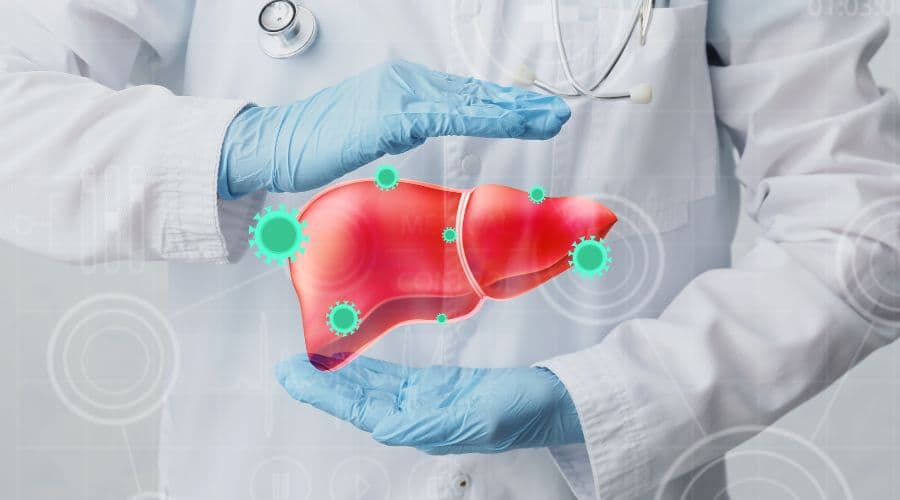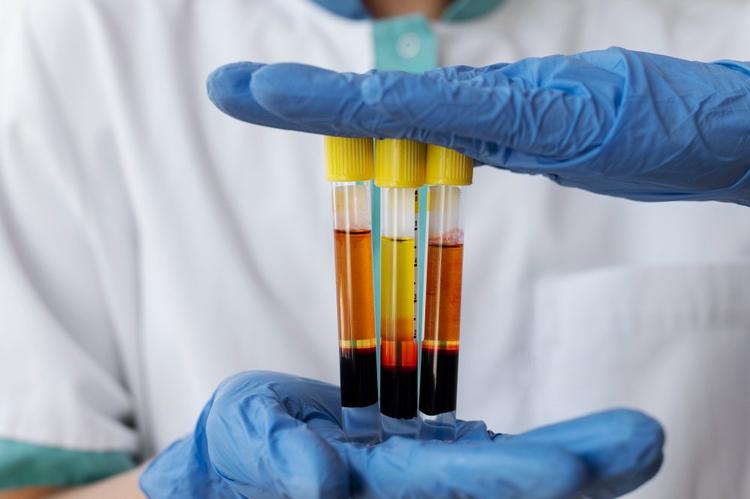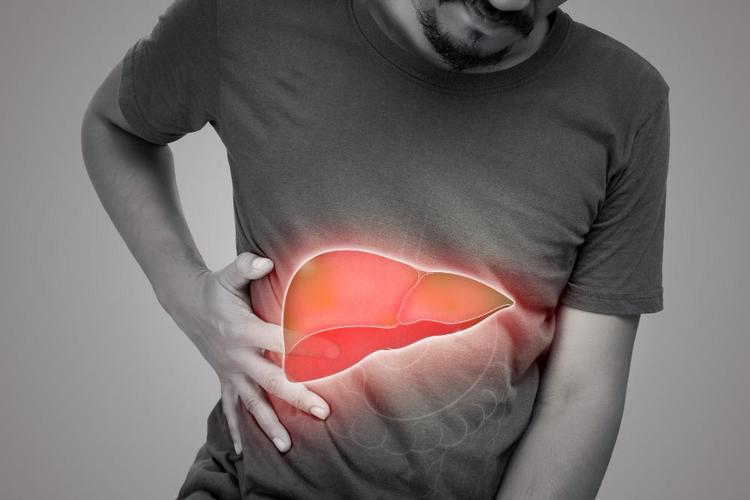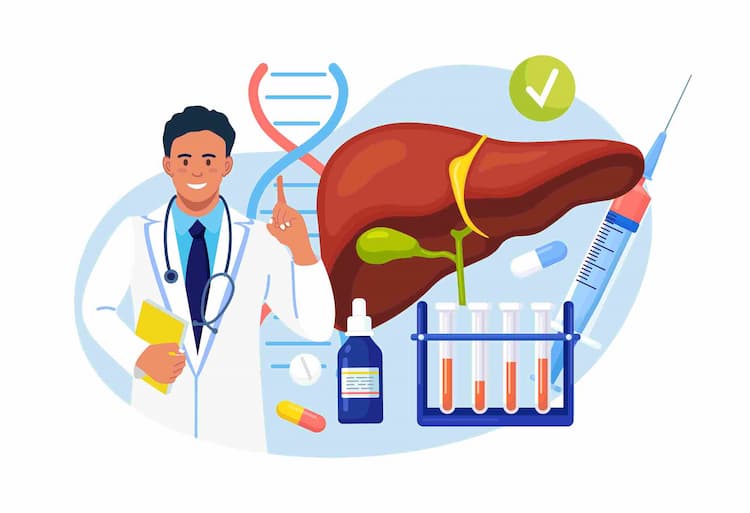High Cholesterol And Liver Diseases – How Is It Related?

Medically Reviewed By
Dr Divya Rohra
Written By Meenakshi
on Jan 10, 2023
Last Edit Made By Meenakshi
on Apr 17, 2024

Cholesterol is crucial for varied bodily functions. Having an adequate amount of cholesterol in the body does no harm to the health, but when the level exceeds the limit, it can become problematic and lead to various health problems. Therefore, managing it well is the key to healthy living. And your liver has a significant role in it. Yes, you read that right! Being the second largest organ after the skin, the liver has a crucial role in producing 80% of cholesterol and managing it well. If your liver function is compromised, it can affect bile production, which influences or increases cholesterol levels.
There are majorly two types of cholesterols in the body, high-density lipoprotein (HDL) and low-density lipoprotein (LDL). The total of both levels should not exceed 5mmol/L in a healthy individual. A level above this standard range can affect liver health and increases complications.
High Cholesterol Is Harmful To Your Liver
It is a fact that high cholesterol is harmful to your heart, but little does everyone knows that it is even worse for your liver. Yes, high cholesterol can be bad for your liver. Besides increasing your risk for developing fatty liver disease, too much cholesterol in the body can turn the existing underlying condition into a fatal one. An uncontrollable rise in cholesterol levels can make steatosis into nonalcoholic steatohepatitis (NASH). Therefore, it is essential to control high cholesterol levels. If not managed and nonalcoholic steatohepatitis (NASH) has occurred, it can lead to:
- Scarring
- Liver cancer
- Liver Failure
- Chronic liver inflammation
Familial Hypercholesterolemia And High Cholesterol
High cholesterol in the family is called Familial Hypercholesterolemia. It is a genetic disorder that elevates bad cholesterol, which as a result can increase one’s risk of developing coronary heart disease or having a heart attack at a very young age. Familial Hypercholesterolemia affects an individual’s liver’s ability to recycle bad cholesterol. The condition can increase cholesterol levels in the body and lead to liver problems and other health conditions.
Liver Disease Influences Cholesterol Levels – Here’s How?
Liver disease, be it Hepatitis, Alcohol-related liver disease, or non-alcohol fatty liver disease, can cause serious damage to the liver. It can drastically affect its functioning and increase the cholesterol buildup in the body. Diagnosing the disease at an early stage is the key to controlling the damage and preventing severe complications.
Usually, high cholesterol levels cause no symptoms. It makes diagnosis difficult and worsens health. However, liver diseases cause symptoms like chronic fatigue, dark-colored urine, unexplained swelling in the legs and ankles and pain or swelling in the abdomen, and more. Taking these signs seriously is essential to take necessary actions in time and control the damage. A liver function test is what doctors usually prescribe to measure protein and enzymes and diagnose liver diseases. These levels show if the liver is damaged and support clinical treatments.
What are healthy Cholesterol levels?
High-density lipoprotein (HDL) and Low-density lipoprotein (LDL) are the two types of cholesterol-
The normal range of HDL and LDL are as follows-
- LDL should be less than 100 mg/dL
- HDL should be 40 mg/dL or higher
HDL takes cholesterol from cells to the liver, breaking it down and passing it as a waste product. Meanwhile, LDL takes cholesterol from the liver and sends it to cells. Cells use cholesterol, but too much can build up arteries and cause health problems. This is why LDL is also known as bad cholesterol.
Can liver disease cause high cholesterol?
Well the answer is Yes. If any of your family members have high cholesterol, i. In that case, sue, it is likely because the liver is not able to recycle and keep the cholesterol as it should, that causes high cholesterol.
How to diagnose High cholesterol?
Many times, high cholesterol does not cause any symptoms. But doctors recommend that a person who is 45 to 75 years, has diabetes, or other health issues must take the cholesterol test regularly. Below are the some test to check cholesterol and liver function-
Test to check liver function
Test to check cholesterol level.
Control Cholesterol To Control Liver Damage:
If you have high cholesterol levels, your concern about liver damage is obvious. But don’t worry, as there is so much that you can do to control your cholesterol levels and protect your liver. Such as:
- Indulging regular exercise or at least a brisk walk can bring cholesterol levels to the right balance and reduce the risks of adverse health conditions.
- Always learn about your family history of high cholesterol. Knowing that it runs in your family encourages you to adopt a healthy lifestyle to manage cholesterol levels.
- Maintaining a healthy body weight is another simplest and most effective way to manage the rising cholesterol levels in the body. So, if you are overweight, shedding the extra pound can do wonders for your cholesterol levels.
- Switch to a diet with less carbohydrate, saturated or trans fat, and eat more fiber to lower your cholesterol levels to a healthy limit.
- Whether you have alcohol-related liver disease or non-alcoholic liver disease, it is advisable to quit drinking to control the damage.
- Besides making healthy lifestyle changes, indulging in routine cholesterol test or liver function tests is also essential to keep a tab on your health.
All the above tips can make it possible to manage cholesterol levels. However, these steps solely are not enough. You also need to consult a trained practitioner to know where your health stands and take action accordingly to control the damage and cure the condition.
All-in-all, cholesterol and liver diseases are connected, and the health of your liver is majorly linked to cholesterol in the body. Therefore, if your cholesterol levels are out of control, you should take the necessary actions to manage the condition better.
Routine Diagnosis Is A Real Game-Changer!
Besides preventive care, making routine diagnosis a part of your life is essential to turn the table for good. Getting screened increases your chances of finding the problem at the earliest and help you get the treatment before it’s too late.



